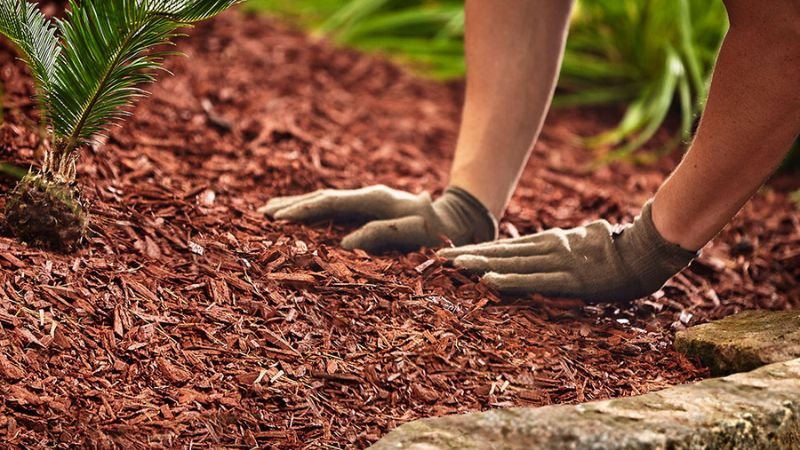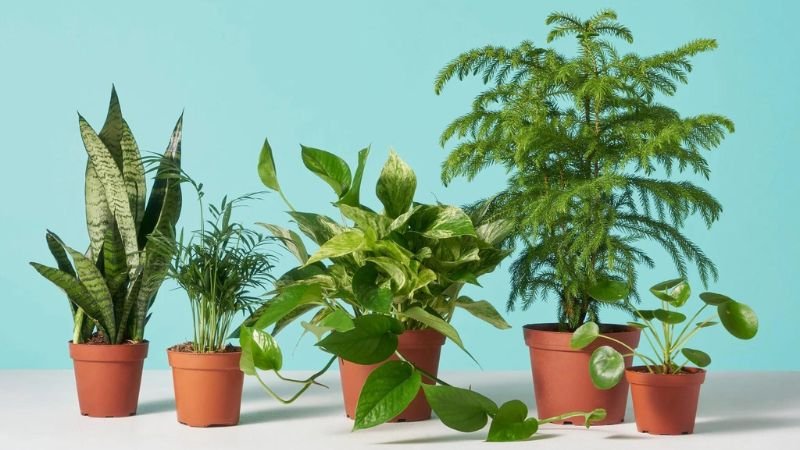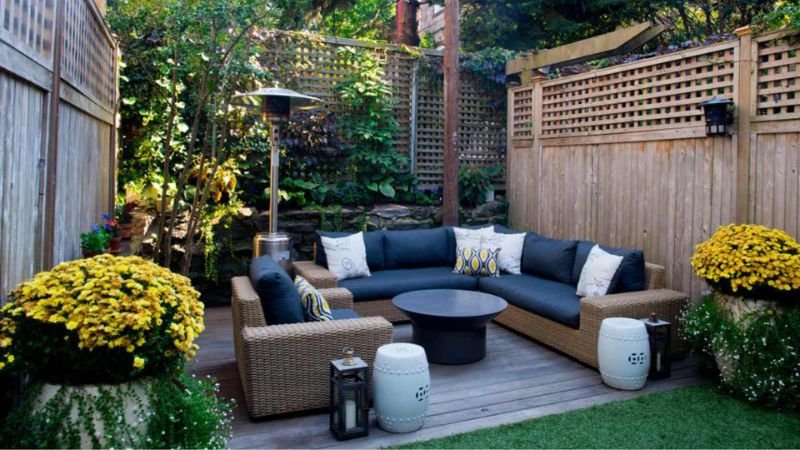How To Choose The Best Mulch For Your Landscape – Selecting the right mulch for your landscape can transform the look and health of your garden. With so many options available, from organic to inorganic mulches, it’s important to choose one that meets both your aesthetic preferences and practical needs.
Mulch not only enhances the visual appeal of your garden but also plays a crucial role in retaining soil moisture, suppressing weeds, and improving soil health. This guide will walk you through key factors to consider, such as mulch type, color, texture, and durability, to help you make an informed decision. Whether you’re aiming for a vibrant garden or a low-maintenance solution, the right mulch can make all the difference.
How To Choose The Best Mulch For Your Landscape?
1. Evaluate Your Landscape Needs
Before selecting mulch, assess the specific needs of your landscape. Consider factors such as the climate, soil type, and the purpose of the mulch. For instance, if you live in a region with extreme temperatures, a mulch that provides insulation and moisture retention may be beneficial. In contrast, if your garden faces heavy rainfall, choosing a mulch with good drainage properties is crucial.
Additionally, think about the type of plants you have and their requirements. Some plants may benefit from the nutrient-rich organic matter provided by certain mulches, while others might require different properties. Identifying these needs will help you choose a mulch that not only enhances the appearance of your garden but also supports plant health.
Also Read:- Landscape Design Tips For Beginners
2. Understand Different Types of Mulch
There are two main categories of mulch: organic and inorganic. Organic mulches, such as wood chips, bark, and leaves, decompose over time, adding nutrients to the soil and improving soil structure. They also help with moisture retention and weed suppression. Inorganic mulches, such as gravel, rubber, or landscape fabric, do not decompose and thus require less frequent replacement.
They are effective for long-term weed control and can be useful in areas where soil improvement is not a priority. Understanding these types will help you make an informed decision based on your garden’s specific needs and maintenance preferences.
3. Consider Mulch Color and Aesthetics
Mulch has a big impact on your garden’s aesthetic appeal. Organic mulches, like cedar or pine bark, often come in natural tones that blend seamlessly with plantings, while colored mulches, such as red, brown, or black, can add vibrant contrasts and define garden beds. When choosing a mulch color, consider how it will complement your garden’s overall design and plant colors.
However, be mindful of colored mulches that use dyes, as they should be non-toxic and safe for your plants and the environment. The right color can enhance the aesthetic of your landscape and provide a cohesive look that aligns with your garden’s style.
4. Determine Mulch Texture and Size
The texture and size of mulch can affect both its function and appearance. Coarse mulches, such as large wood chips or bark, are effective at suppressing weeds and retaining moisture, but they can be more noticeable and may not provide as refined a look.
Fine-textured mulches, like shredded leaves or sawdust, create a smoother, more uniform appearance and are ideal for smaller garden beds or around delicate plants. Additionally, consider the size of the mulch pieces in relation to your garden’s scale and design. Choosing the right texture and size will impact the mulch’s effectiveness and how it integrates with your garden’s visual elements.
5. Assess Durability and Longevity
Different types of mulch have varying levels of durability and longevity. Organic mulches decompose over time, requiring regular replenishment to maintain their effectiveness. For instance, wood chips and bark may need to be replaced annually or biennially.
In contrast, inorganic mulches, such as rubber or gravel, can last for several years without significant changes. When selecting mulch, consider how long you want it to last and how much maintenance you’re willing to perform. A more durable mulch might have a higher initial cost but could save you time and effort in the long run.
6. Check for Environmental Impact
The environmental impact of mulch is an important consideration. Organic mulches, especially those made from recycled materials or sustainably sourced wood, can be eco-friendly choices that improve soil health and reduce waste. On the other hand, some inorganic mulches, like rubber, are derived from synthetic materials and may not decompose, potentially contributing to landfill waste.
When choosing mulch, opt for products that align with your environmental values, such as those made from recycled materials or sourced from sustainable practices. This approach not only benefits your garden but also supports broader environmental goals.
Also Read:- Landscaping Ideas For A Sloped Garden
7. Calculate the Right Amount
Once you’ve chosen the type of mulch, accurately calculate the amount needed for your garden. Measure the area to be mulched, considering both the length and width, and determine the desired depth of mulch, typically between 2 to 4 inches. Most mulch is sold by the cubic yard, so use an online calculator or consult with a garden center to convert your measurements into cubic yards.
Applying too much mulch can lead to issues like poor aeration and root rot, while too little may not provide adequate benefits. Accurate calculations ensure you purchase the right amount, saving you time and money while achieving the desired results.
Conclusion
Choosing the best mulch for your landscape involves evaluating your garden’s specific needs and preferences. By considering factors like mulch type, color, and functionality, you can enhance both the beauty and health of your outdoor space.
Remember, the right mulch will not only improve the look of your garden but also contribute to better soil conditions and reduced maintenance. With the information provided, you’re now equipped to select the ideal mulch that suits your landscape’s unique requirements.
FAQs
What type of mulch is best for retaining soil moisture?
Organic mulches, such as wood chips or bark, are excellent for retaining soil moisture as they decompose and enrich the soil.
Can I use colored mulch in my garden?
Yes, colored mulch can add aesthetic appeal to your garden, but ensure it’s made from non-toxic dyes and suits your landscape’s overall design.



